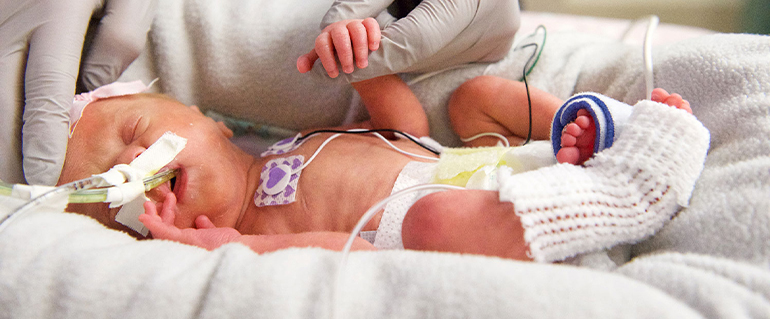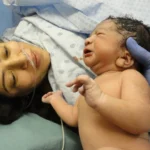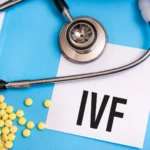Neonatal Transport Is A Specialized Method Of Moving A Preterm Infant To The Neonatal Critical Care Unit-
Neonatal transport is a specialized method of moving a preterm infant to the neonatal critical care unit. This practice is usually done by using a ventilator, endotracheal tube, and a suction catheter. Neonates are transported in this way because they are at risk for hypoxia and hypercapnia which can result in brain damage if not treated quickly enough. Neonatal transport team members include nurses, respiratory therapists, anesthesiologists, neonatologists, pediatricians and neonatology fellows.
Neonatal transport is used to bring preterm infants that are in need of intensive care to a neonatal intensive care unit.The practice of neonatal transport has evolved over the past 100 years, with the first use of such a transport being documented in 1907. A 2007 study found that this practice has continued to evolve since then by combining different forms of technology, such as ventilator, endotracheal tube and suction catheter which have helped reduce mortality rates for preterm infants.
A Brief Overview of the Process of Transporting Ill Neonates-
Neonates are transported from the hospital to the neonatal intensive care unit (NICU) in a variety of ways. The most common methods are via ground transportation and air transport. However, there are also other methods such as ambulance transfer or helicopter transfer. The process begins with the Neonatal Transport Team making contact with the parents or legal guardians of a neonate to discuss how they would like their baby to be transported. The Neonatal Transport Team then provides information on what is required for travel and what steps need to be taken in order for travel to be approved.
The Neonatal Transport Team then coordinates with an appropriate NICU transportation coordinator who will make all necessary arrangements for transport. A neonate’s medical condition is assessed by staff at the hospital before they decide whether or not they should proceed with transport by ground or air ambulance, which can take anywhere from one hour to six hours depending on the location.
The Neonatal Transport Team is responsible for coordinating neonatal transport from the hospital to a NICU. The purpose of this team is to ensure that neonates are not transported if their medical condition or circumstances would make ground transportation unsafe. They also coordinate air and other transport methods, as well as provide information on what is required for travel and what steps need to be taken in order for travel to be approved. They work with an appropriate NICU transportation coordinator who will make all necessary arrangements for transport, including whether or not it should be by ground or air ambulance, which can take anywhere from one hour to 12 hours depending on distance.
Explain the Science Behind Neonatal Transport-
Neonatal transport is the process of moving an infant or child who has not yet reached their first birthday from the place they were born to a hospital. This process is usually done by parents, relatives, and friends. However, in certain cases, it may be necessary for a nurse to transport the infant. The science behind neonatal transport is that it improves the survival rate of preterm infants and helps them reach their first year of life with less complications.
Neonatal transport is important in saving the life of a preterm infant, especially when they are not able to survive outside of their mother’s womb. This process helps them make it out of the hospital and into their family’s home. Neonatal transport also helps prevent neonates from experiencing hypoxia (insufficient oxygen), which can lead to brain injury or death. However, neonatal transport is not always done correctly and can lead to adverse effects if transportation occurs too long after birth for instance, if an infant was born at 34 weeks gestation then transported on day 2 or later without a physician’s order, then this can result in brain injury or death.
The Realities of Neonatal Transport – The Stresses and Risks Involved in the Process-
Neonatal transport is one of the most stressful and risky parts of the hospital process. This is because babies are vulnerable and can’t communicate with their parents or caregivers. The neonatal transport process involves a lot of stress, risks, and complications. It is essential to have a clear understanding of these risks before agreeing to transport your baby.
The neonatal transport process has four phases: arrival at the hospital, assessment and preparation, transfer to the post-anesthesia care unit (PACU), and discharge. It is during these phases that you should be aware of your risks as well as your options for responding to them.The neonatal transport process begins with a “call” alerting parents of a newborn’s arrival at the hospital. This is typically done through a telephone call or emergency page from the unit where they are located. The medical team will assess your baby’s needs and perform any necessary preliminary procedures before transporting them to their destination.
The process of neonatal transport is generally associated with long-term risks. These can include various complications during the transport process, such as falls and injuries caused by the transportation itself. Complications may also arise because of medical conditions your baby has developed after the trauma of being transported, such as hypoxia or jaundice. You should talk to your doctor about any possible risks before agreeing to neonatal transport for your baby
What Happens When Your Child Has to be Transported?
The transport experience of critically ill neonates is a critical one. The neonate needs to be transported to the hospital in a timely manner. The Neonatal Intensive Care Unit (NICU) is where most critically ill neonates are cared for. This unit is designed to provide the best care possible for these babies. When parents arrive at the hospital, they will find out if their baby needs to be transported by an ambulance or if their baby can be cared for at the NICU.
A neonatal transport team is composed of a nurse, an assistant, the driver, and an EMT-entry level provider. The team will typically have a single or double stretcher depending on the size of the baby. They also may have oxygen tanks, suction apparatus, and other equipment. A newborn infant will typically be transported in a third party incubator and any additional supplies necessary for resuscitation would be brought with them. They should also provide transport to pediatric hospitals and specialty care units if necessary. The purpose of transport is to get the neonate to their destination as fast as possible and they should be able to provide a timeline on arrival.
















